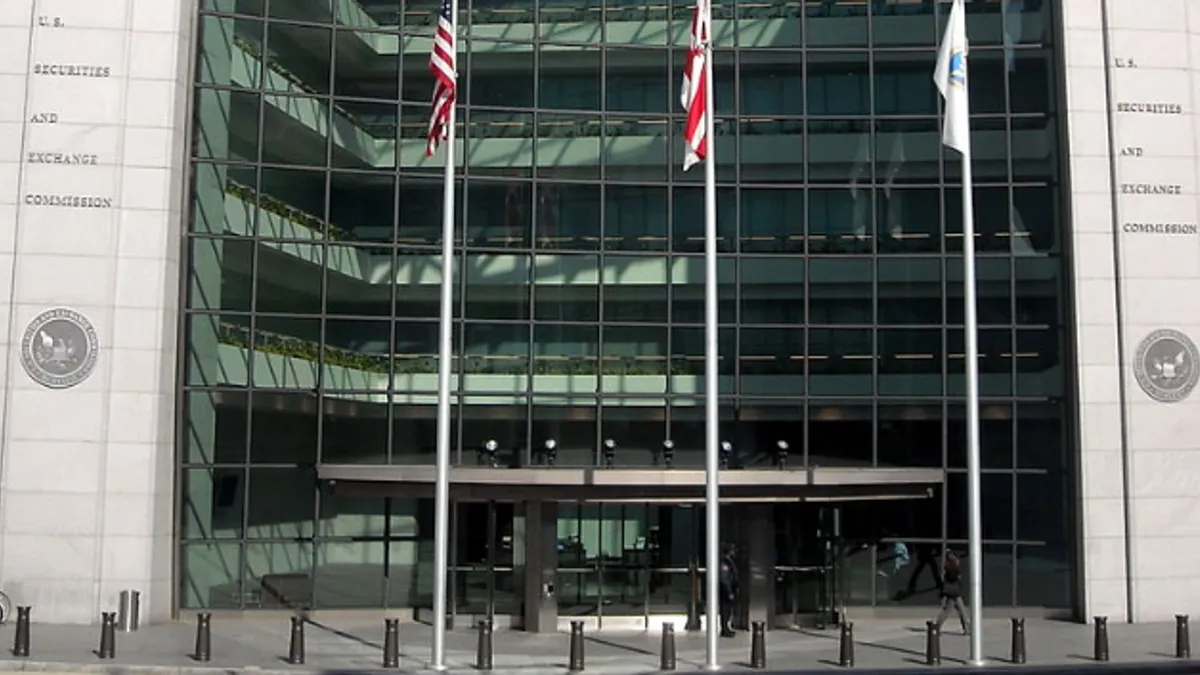The Securities and Exchange Commission (SEC) will focus more on auditors' objectivity and impartiality and less on their relationships with the companies they audit, under rule changes the agency passed last week.
The changes, the most sweeping since 2003, led to pushback from some commissioners, who said they weaken standards and reduce transparency.
"We cannot support introducing greater opportunity for error and uncertainty into auditor independence standards while decreasing visibility into how auditors are actually making these judgments," commissioners Allison Herren Lee and Caroline Crenshaw said in a statement.
SEC Chairman Jay Clayton defended the changes, which apply to Rule 2-01 of Regulation S-X, as a modest effort to get regulators focusing on what counts — relationships and services that impact auditors' objectivity and impartiality. Right now, regulators devote time and resources to studying auditor-client relationships even if there's little chance they'll impact auditors' objectivity and impartiality.
"Far-reaching and restrictive rules can have unintended, negative consequences," Clayton said in a statement. "The reach of our rules, particularly in the cases of a broad, diversified investment portfolio ... is operating to limit auditor choice which, in turn, may adversely affect the important arm's-length nature of the issuer-auditor relationship."
Affiliate definition
In one of the key changes, less-restrictive definitions will be applied to "affiliate of the audit client," in Rule 2-01(f)(4), and "investment company complex," in Rule 2-01(f)(14).
Once the new definitions take effect, a company that today would have to change its audit firm because of the firm's relationship with an affiliate of the company, won't have to.
Clayton said this can actually improve audit quality because forcing a company to change audit firms could result in poorer quality to the extent a company has fewer qualified audit firms to choose from.
"In some situations, the existing audit firm cannot be replaced as a practical matter because all other qualified audit firms have themselves provided services or established other relationships with portfolio companies of [the company's key investor]," Clayton said.
In an example the SEC provided, a company whose ownership includes a big stake by an investment fund that has many other companies in its portfolio would not have to change audit firms just because the firm is also providing services to other companies in the portfolio.
"The SEC staff conducted a number of consultations in which this fact pattern, or one similar to it, was raised," the SEC analysis said. "The SEC staff, under such circumstances, did not object to the auditor's and the audit committee's conclusion that the auditor's objectivity and impartiality would not be impaired."
Eased rules
Other changes will reduce regulatory burden on companies.
- Look-back period. A new definition for "audit and professional engagement period" under Rule 2-01(f)(5)(iii) will shorten the look-back period. Companies preparing to issue an initial public offering (IPO) will only have to look back one year rather than three to determine if they've met auditor independence requirements.
- Beneficial owners. The business relationships reference to "substantial stockholders" in Rule 2-01(c)(3) will be replaced with "beneficial owners with significant influence," a more targeted definition.
- Mergers and acquisitions. A transition provision in Rule 2-01(e) will be replaced with a framework that addresses independence violations that arise inadvertently as a result of a merger or acquisition.
- Categorical exclusions. Certain student loans and de minimis consumer loans will be added to the categorical exclusions in Rule 2-01(c)(1)(ii)(A)(1) and (E) to independence-impairing lending relationships. In an example the SEC provided, an audit firm partner who is still paying off a student loan won't automatically trigger an independence violation if another partner in the firm is auditing the student-loan lender.
The rule changes take effect six months after they're published, which is expected to happen shortly.














